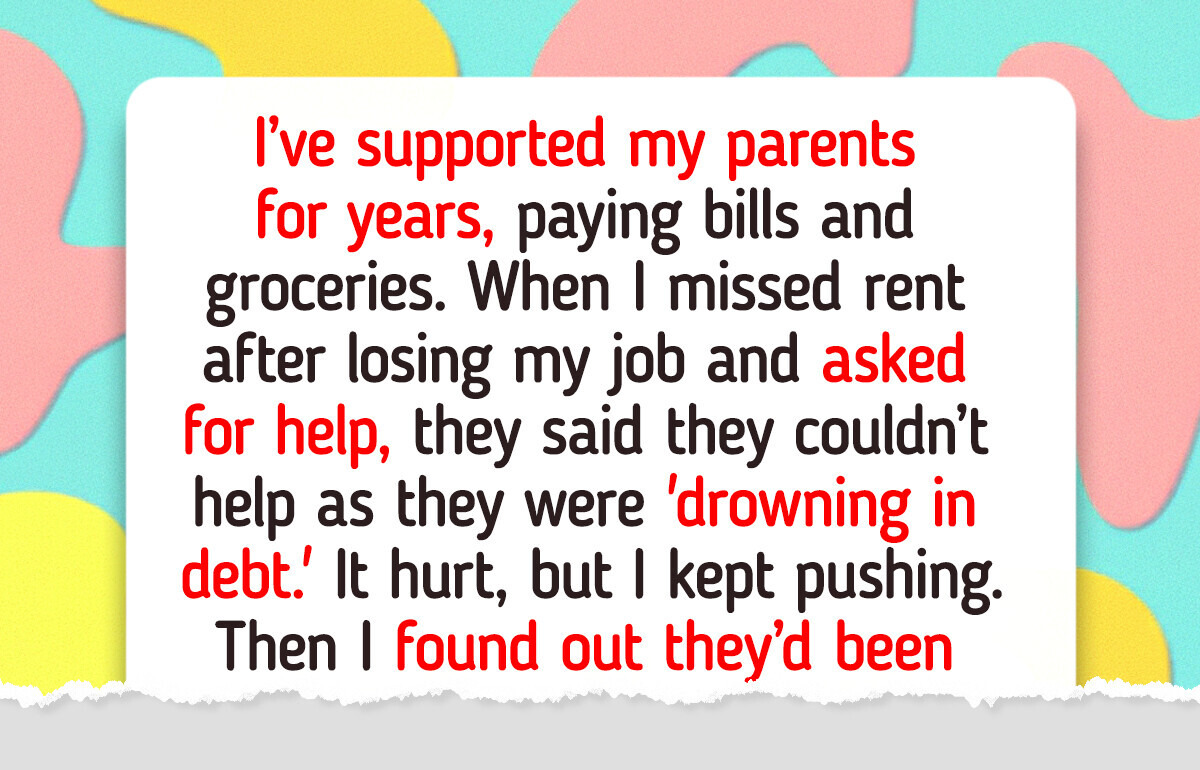I Refuse to Cover My Stepson’s School Tuition


You can spend years helping others, supporting friends and family through tough times. But then, when it’s your turn to ask for help, things might take a surprising turn. The author of this story found herself in a frustrating situation.

“I’ve supported my parents for years, paying bills and groceries. When I missed rent after losing my job and asked for help, they said they couldn’t help as they were ’drowning in debt.’ It hurt, but I kept pushing.
Then I found out they’d been quietly paying off a huge debt... to my ex.”

“Apparently, my parents had taken a large sum of money from him to fund their dream vacation, and now they were struggling to pay it back. The fact that they prioritized repaying my ex, someone I’d moved on from, over helping their own child was shocking.
Even more painful was that they didn’t tell me about it, making me feel completely excluded from decisions that impacted us both financially. Now, they’re asking for my help to cover the debt. It’s left me feeling betrayed, as if the years of support I gave them didn’t mean as much as what they owed to my ex.”

In this situation, it’s understandable to feel angry and betrayed.
The author had always been there for her parents, offering support in tough times, and naturally expected the same when she needed help. However, they were not keeping their end of the unspoken agreement of family support. To top that off, they went behind her back and now expect her to help them again.
The secrecy around paying off the debt to the author’s ex might come from a few different reasons.

The author’s relationship with her parents seems to be one where she’s always been the one helping, whether emotionally or financially.
The situation with her ex is far more complicated. Even though the ex is no longer in the author’s life, there might still be some emotional connections at play, which could explain why he’s helping the author’s parents.

It sounds like the parents have made financial decisions that have affected their relationship with the author. And if they are using money that was given for other purposes, such as bills or emergencies, to fund luxuries like a vacation, this could signal deeper issues within the family dynamic.
The vacation spending might create resentment, especially when the parents later ask for help but fail to support their child when needed. This imbalance can be emotionally taxing for the author and may cause her to question her relationship with them, especially if she feels manipulated or neglected.
Such situations force you to confront just how much you’re willing to invest in relationships that don’t offer you support in return. If you find yourself in this situation, taking time to reflect, rethink your boundaries, and process your emotions may be the way to find a solution.











